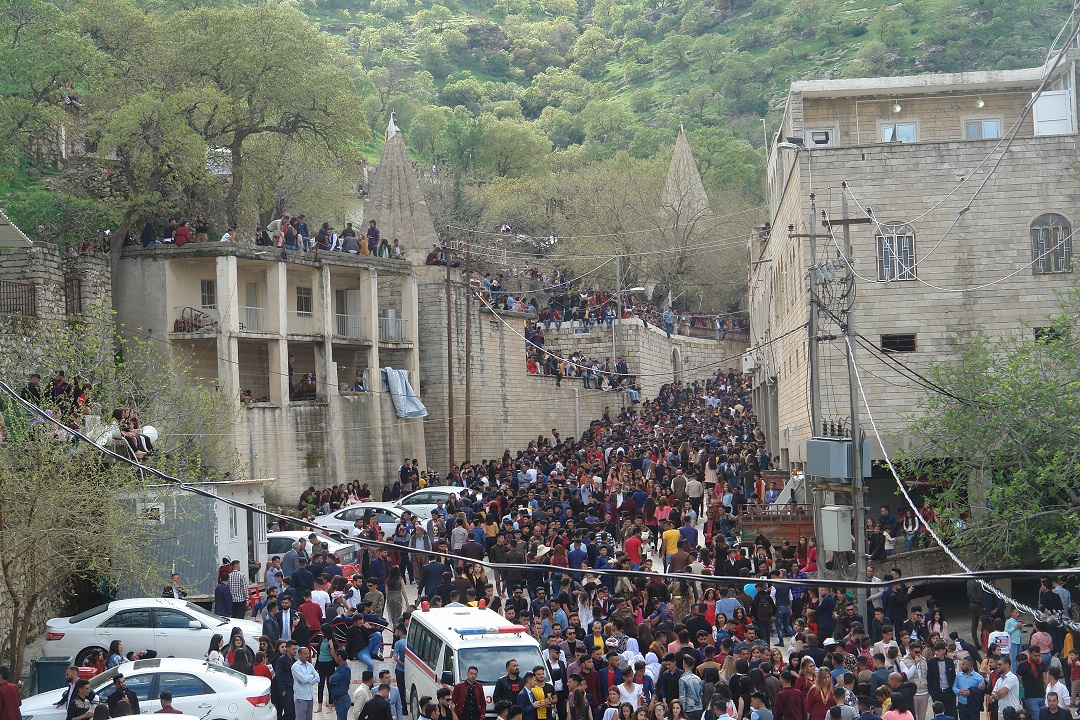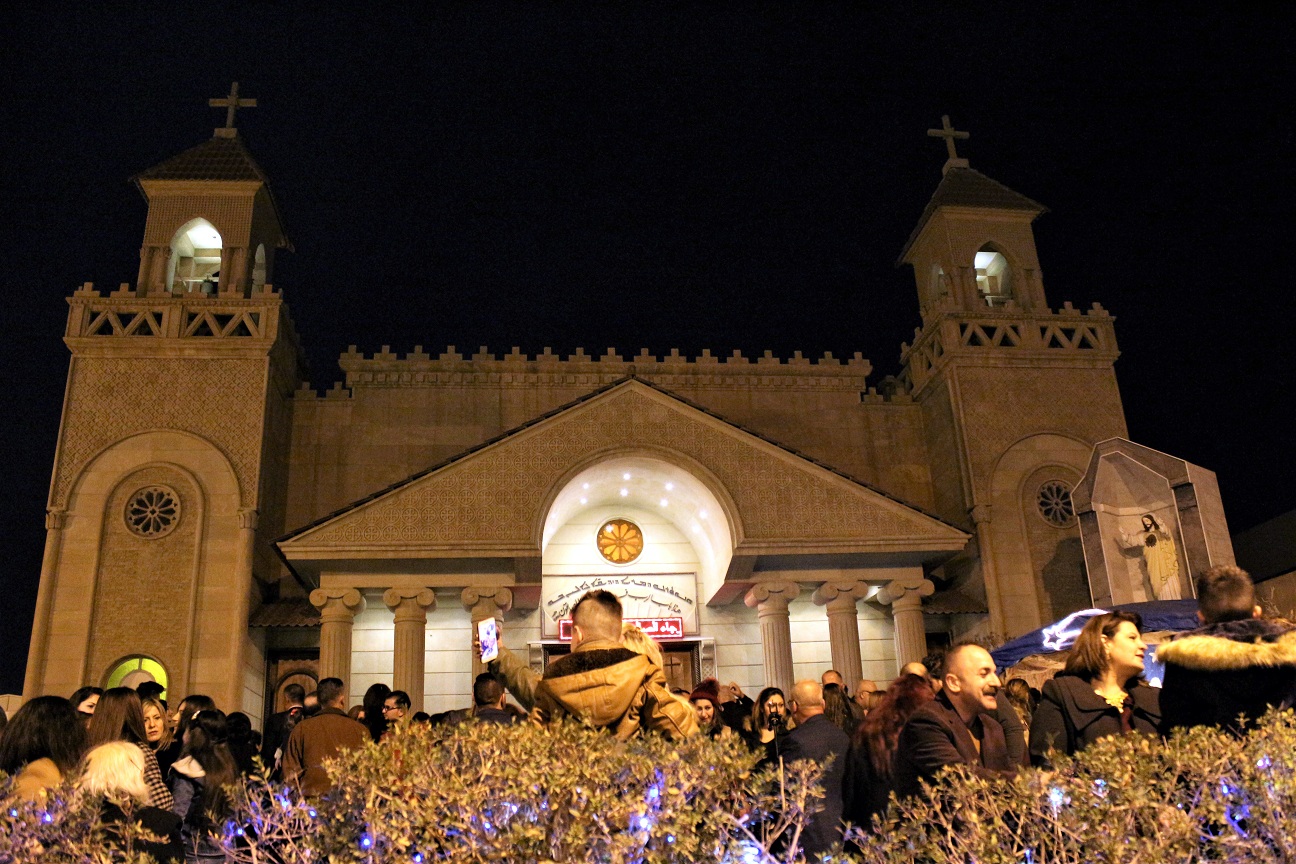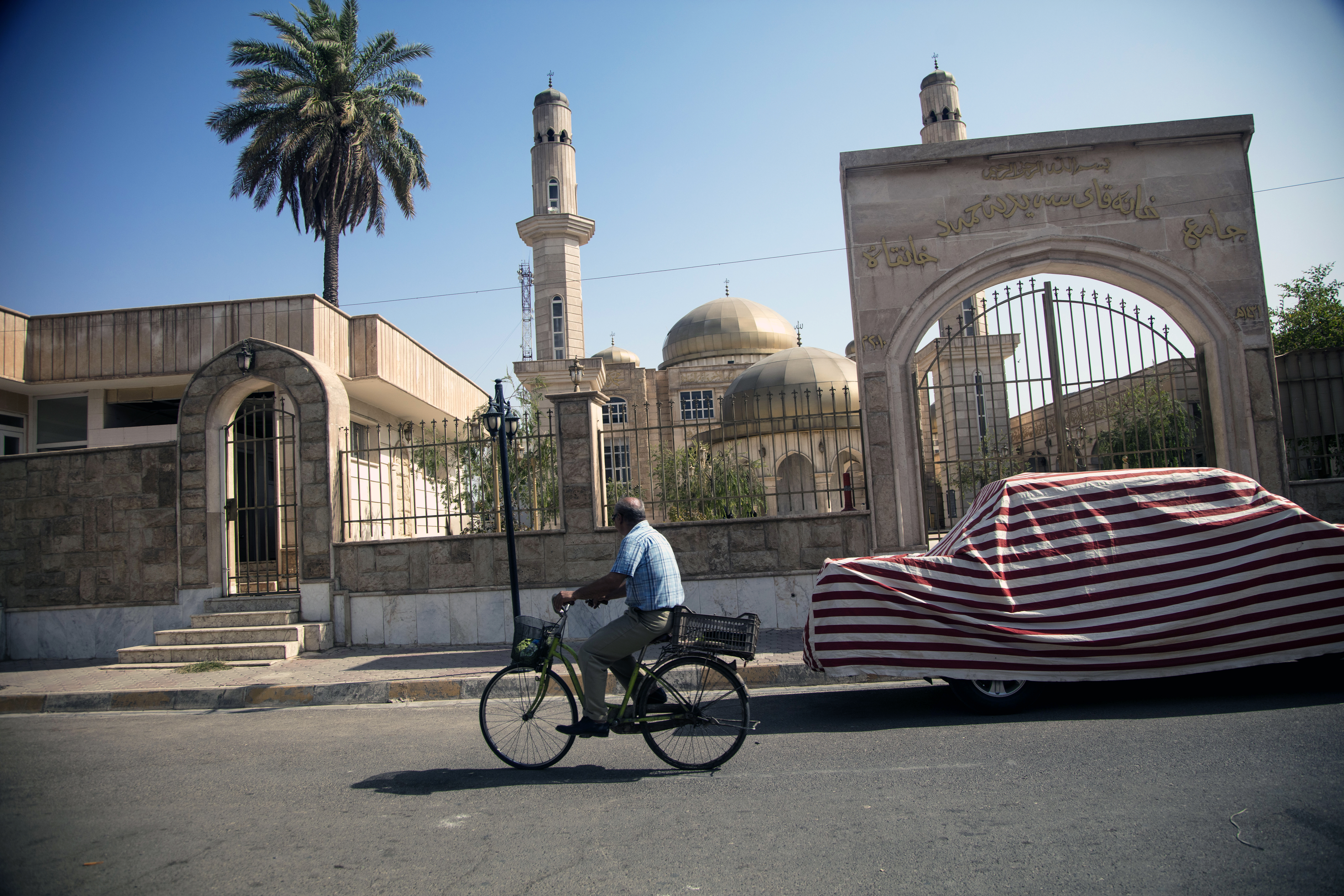It’s election time. Propaganda is everywhere, posters of candidates are even hung on the walls of religious shrines. The campaigns have not stopped there, but within the mosques, churches, and shrines, elections have become a hot topic.
During the election period, a sermon by an Imam, a priest or a religious figure may mobilize more people than the candidates’ and lists’ platforms and promises.
“I participate in every election. I believe that I carry out my religious duties [this way] because my religion places importance on the process,” says Haifa Salh.
Islam is very influential and it encourages people to have their own opinions
She acknowledges that she is heavily influenced by the speeches of religious leaders and she follows their instructions. “Islam is very influential and it encourages people to have their own opinions; otherwise, elections might not be that important to me.”
Salh lives in religiously diverse district of Shekhan in Nineveh province. She does not want the role of religion in mobilizing voters during elections to be discounted.

Shekhan, an Ezidi ceremony at Lalish temple, 2019. Photo: KirkukNow
The mosques’ pulpit and loudspeaker have different functions; sometimes they are used to compel voters to exercise their right to vote and in other cases, they provide a platform to promote certain candidates and lists of political parties.
Jozif Elyas Yalda, a Christian priest in Alqosh town, told KirkukNow, “perhaps some religious figures have used their positions for their own interests, which is a major sin when someone interprets a religious text based on his preference.”
“We have no interest in [mobilizing voters in this way]: we only encourage people to participate in elections for their interests and for the success of electoral process.”
We only encourage people to participate in elections for their interests
Yalda admits that clergy encourage constituents to vote for the candidate that would serve and represent them without naming any candidates, parties, or electoral lists or any ethnicities.
“We are with the people every election… surely people follow our words,” Yalda added.
The Iraqi parliamentary electoral laws strictly prohibit the use of religious shrines and symbols by candidates for campaign advertising and activities.

Kirkuk, Christians gather at a church to celebrate Christian New Year, 2018. Photo: KirkukNow
Amira Haider, a displaced Ezidi woman in Qadya camp in Duhok, had decided not participate in the 2018 federal elections. However, “I changed my mind for the sake of religious figures when they asked that we vote for an Ezidi candidate.”
Haider stated that there is a common perception among the Ezidi community, that those elected by the Ezidis themselves become the community’s leaders, not those from outside the group making decisions on their behalf.
In each Iraqi election, many Imams and religious figures became candidates and majority of them have gained enough votes to win seats in parliament or the provincial councils.
Islam has explained everything, including elections
Badradin Shekh Islam, an imam, thinks that the role of clergy in the elections is only restore people’s trust in the process. “Islam has explained everything, including elections, and it is very difficult to separate elections from religion because religious figures have played an important role in mobilizing people to participate in the process.”
He said there are numerous examples of Quaranic verses demonstrating the importance of people’s participation in electing their representatives and of representatives addressing citizens’ concerns, “which all reaffirm that everyone must vote freely without any pressure,” Shekh Islam claimed.
The electoral laws and regulations promulgated by the Independent High Electoral Commission (IHEC) establish fines as punishment for candidates and electoral lists that hold campaign events at religious sites.
Berivan Salim Shamo, the Deputy Director of the Duhok’s provincial council and an Ezidi, told KirkukNow, “of course, elections are political, but there is a direct relationship between elections and religion. I can say that they complement one another.”
Of course, elections are political, but there is a direct relationship between elections and religion
She thinks that turnout would be quite low without religious mobilization, adding that hundreds of Ezidi males had made their decision to boycott the elections but the requests and intervention of spiritual leaders persuaded them to vote.
According to the Iraqi constitution, Islam is the official religion of the state and is “a foundational source of legislation” but the state “guarantees the full religious rights to freedom of religious belief and practice of all individuals such as Christians, Yazidis, and Mandean Sabeans.”
“The use of mosques, Hussainiya, Churches and other religious shrines gives momentum to sects and political parties because many of people gather there. Religious texts are not interpreted as they are, but in a way that they can mobilize people for a particular political agenda,” election expert said Salh Zaher.
Religious texts are not interpreted as they are, but in a way that they can mobilize people for a particular political agenda
Zaher believes that separating religion from elections “is almost impossible.”
He added the solution is to establish a framework for preventing clerical intervention in politics, adding that just as the electoral commission has regulated and established penalties for the unauthorized use of religious sites and symbols for political campaigns, the involvement of religious figures must be limited to an advisory role; to encourage people to participate in the elections, and not to instruct them on how or for whom to vote.





